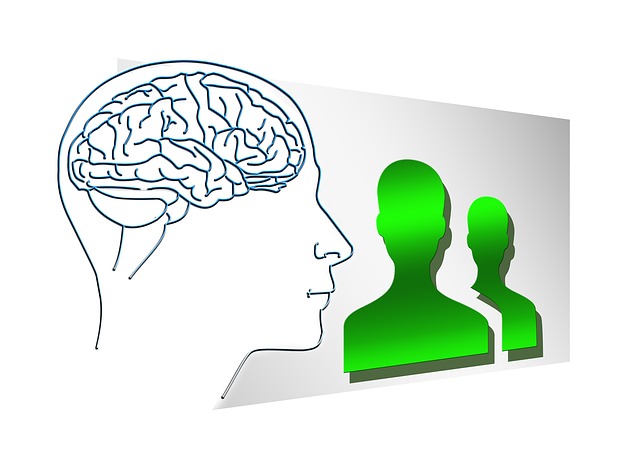 Donald McRae has written a wonderful book on the last trials of Clarence Darrow. There we see how Darrow appealed to the Triune Brain in his closing arguments.
Donald McRae has written a wonderful book on the last trials of Clarence Darrow. There we see how Darrow appealed to the Triune Brain in his closing arguments.
First, Darrow always believed in his case. For Darrow, as for any lawyer, doubt or lack of sincerity translates to failure. Second, he internalized the facts and the law (especially the facts) so they were as familiar to him as his own background. Third, the appeal was always without notes, and from the heart as well as from the mind.
In preparing for the emotional appeal to the unconscious mind in a death penalty case Darrow drew on his own childhood. He remembered his father telling him as a boy of the revulsion he had in witnessing a hanging. According to Mr. McRae, Darrow’s father’s description of the scene marked Darrow. “Almost sixty years later those same feelings coursed through Darrow as he addressed the court.” D. McRae, The Last Trials Of Clarence Darrow (2009)(“brief quotations embodied in critical articles” allowed).
Here Darrow drew on his emotional memory of feelings and images of horror he had from childhood of a hanging to convey that same emotion in his closing argument. This is an appeal to the emotional unconscious mind. In relating hanging in his closing argument Darrow talked in a descriptive way in the present tense avoiding the use of any negative such as “we cannot hang a man.” Darrow conveyed his own emotional feeling about hanging. In this way Darrow related to the Limbic unconscious mind of the judge.
Later we learn in another murder trial Darrow appealed to the logical conscious Neocortex in using the legal definition of “a mob.” He clearly described the legal definition in a logical analytical way. The description was narrow in scope but detailed in describing the legal elements. Once he accomplished this he continued to appeal to the conscious logical mind by contrasting the defense’s description of the scene “of people merely passing by” as making no sense.
According to Mr. McRae once this was done Darrow switched gears by separating the logical argument from the emotional argument. He did this by separating the arguments going from logical words to emotional words and pacing himself. For the emotional argument he recreated the terror his clients experienced when they were confronted by the mob.
Darrow also appealed to the Reptilian Brain. The murder case involving the mob was one in which African Americans shot and killed a white man in the mob engaged in what defendants believed was a storming of their home. Darrow appealed to each juror’s R-Complex by discussing the danger of one’s home being stormed by an African American mob.
Clarence Darrow did not know about the Triune Brain. To Clarence Darrow it was instinctive to separate the logical from the emotional. It was instinctive to discuss safety and danger and how the jury could eliminate it in the future. It came natural to talk in a positive way in the present tense. It came natural to pace himself with pauses and going from a near whisper to a booming voice.
For us: when we believe in our case; when we have internalized our case; when we know the facts of our case like our own background; when we methodically explain the concrete factual and legal aspects of our case; when we draw on our own emotional memory to recreate for ourselves our client’s injury; when we illustrate how defendant’s conduct is a danger to the community with sincerity and honesty; and, when we forget who we are, and convey from our heart and mind, we try our case naturally to the entire Triune Brain.


 Donald McRae has written a wonderful book on the last trials of Clarence Darrow. There we see how Darrow appealed to the Triune Brain in his closing arguments.
Donald McRae has written a wonderful book on the last trials of Clarence Darrow. There we see how Darrow appealed to the Triune Brain in his closing arguments. According to Dr. Paul MacLean and his Triune Brain theory the most recent evolutionary part of our mind is the Neocortex. The Neocortex is in the upper part of our brain. Here the Neocortex controls higher executive thought-language, mathematics, and reasoning. In a normal development situation our three brains work together from the top down. Thinking at our highest level occurs in the Neocortex, as we are emotionally balanced in the Limbic System, which allows us to go into action with our Reptilian Brain.
According to Dr. Paul MacLean and his Triune Brain theory the most recent evolutionary part of our mind is the Neocortex. The Neocortex is in the upper part of our brain. Here the Neocortex controls higher executive thought-language, mathematics, and reasoning. In a normal development situation our three brains work together from the top down. Thinking at our highest level occurs in the Neocortex, as we are emotionally balanced in the Limbic System, which allows us to go into action with our Reptilian Brain. As we learn from Dr. Paul MacLean the “limbic system” surrounds the R-System like a limb. This part of MacLean’s Triune brain is the emotional cognitive brain. This part of our brain adds our emotions which create long term memory.
As we learn from Dr. Paul MacLean the “limbic system” surrounds the R-System like a limb. This part of MacLean’s Triune brain is the emotional cognitive brain. This part of our brain adds our emotions which create long term memory.